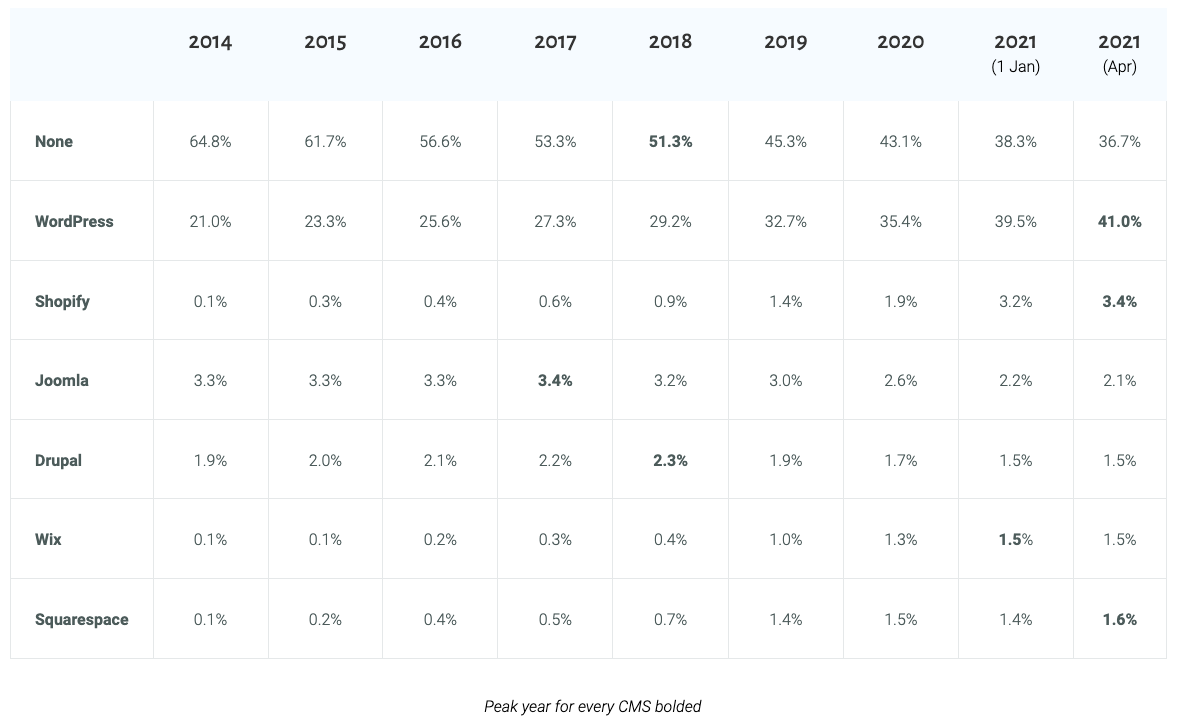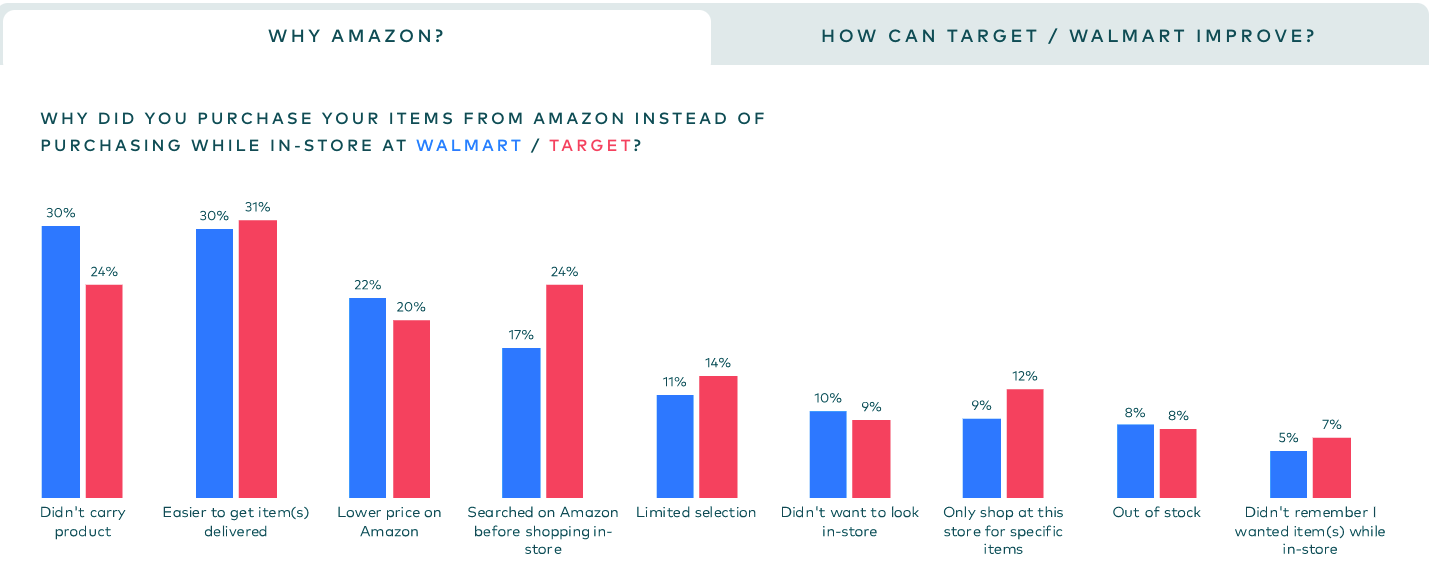Keyword Stuffing Suffers, WordPress Is Really Big, Competing with Amazon

Google's Local Algo Update Fallout
Google recently confirmed that it completed a local algorithm update, between November 30 and December 8. Many local SEOs reported "significant" ranking changes. Joy Hawkins at SterlingSky characterized it as "the biggest change I have seen to the local SERPs" since 2017. According to Joy's preliminary research there are two primary impacts: proximity and business-name keyword stuffing. On the first one, Google appears to be more heavily weighting actual proximity than in the past, which may be tied to recent local pack UI changes and the resizing of the map. On the second impact: "Businesses with keyword-rich names that dominated an entire market, that never should have, are seeing huge drops," observes Joy.
Our November 2021 local search update has concluded. It began Nov 30 and ran through Dec 8. It involved a rebalancing of various factors we consider in generating local search results. General guidance for businesses remains the same as covered here: https://t.co/uyXFfmUEIR
— Google Search Central (@googlesearchc) December 16, 2021
Our take:
- In its announcement, Google pointed to the same local ranking guidance in place for the past several years: relevance, distance, prominence.
- In the 2021 edition of the Local Search Ranking Factors survey, keyword name stuffing was the surprise top new local ranking tactic. Oops.
- The new local pack UI, which coincided with the algorithm update, could have significant impacts on clicks, engagement and, maybe, ads.
Does WordPress Power Half the Web?
According to W3Techs, WordPress is the CMS of choice 43.1% of all websites globally, up from 39.1% last year. Among non-hand coded sites, its share is 64.7%. WordPress' share appears to be so big that it effectively has a veto over things like Google FLoC, which the company tentatively opposed earlier this year. In contrast, an earlier survey by Hubspot of 1,500 marketers (most medium-sized firms) found WordPress adoption to be 22%. That discrepancy is curious. In the Hubspot survey, after WordPress came Adobe Experience Manager (16%), Wix (15%), "Other" (14%), Squarspace (13%). The remaining 42% included Hubspot, Drupal and two others.

Our take:
- Wix said earlier this year that it had more than 210 million accounts globally, suggesting its share is meaningfully larger than what's represented above.
- WordPress's actual share is probably somewhere between the 22% of the Hubspot survey and the 43% in the W3Techs data.
- 91% of Hubspot respondents in the survey said they had a site. For SMBs the numbers are all over the place: 77%, 71%, 64%, 60%, 49%.
Major Retailers 'Leaking' Sales to Amazon
It used to be called "showrooming." Shoppers visit a traditional store, examine what they want to buy and then buy it online for less. That's still going on and Amazon is the biggest beneficiary, regularly stealing a percentage of sales from Walmart, Target and Costco – the three largest US retailers not named Amazon. That's according to data from Numerator. The top three reasons consumers are buying on Amazon instead of Walmart or Target are: shipping is easier, product not carried, lower prices. An earlier, 2021 Uberall survey found similar reasons for Amazon loyalty: 1) fast/free shipping, 2) product selection, 3) lower prices. But just behind lower prices is "I trust Amazon," not captured in the Numerator survey. However, according to Numerator, lowering prices and carrying more products would help retailers better compete with Amazon.

Our take:
- In the Uberall survey only 10% of respondents (n=1,000) said they didn't shop at Amazon.
- Recognizing pricing as a critical competitive advantage, Amazon has been forcing lower prices on Amazon sellers.
- The trust factor and other intangibles like "great service" and "high satisfaction" are hard to directly compete with. But the data here provide clear direction for retailer improvement.
Short Takes
- Google fails to stop running ads on climate denial content.
- Males dominate and trolls already abound in existing VR worlds.
- Facebook bans "surveillance-for-hire" firms that spied on 50K users.
- Consumer Protection Bureau taking a look at BNPL companies.
- Online marketplaces driving real-world organized retail theft.
- NYT having success with add-on subscriptions: cooking, games.
- Who or what is behind the "Web3’s hype machine" (NYT)?
- Supply chain shortages are easing.
- FTC reviewing FB-Meta's plan to buy VR fitness app Supernatural.
- Blockheads: H&R Block sues Block (Square) for TM infringement.
- Luxury brands leading e-commerce innovation in US.
- Google's smart city Sidewalk Labs will become part of Google proper.
- Pre-IPO: Delivery service Gopuff raised $1.5B at a $40B valuation.
- State of the metaverse interview with Niantic CEO John Hanke.
- Consumer online spending: Black Friday is the new Cyber Monday.
- Salesforce: Digital sales grew 3% YoY post "cyber week."
Note: This will be our last edition of 2021. We'll be back next year with some new ideas. In the interim, email us with suggestions and recommendations. And have a great holiday!
Listen to our latest podcast.


